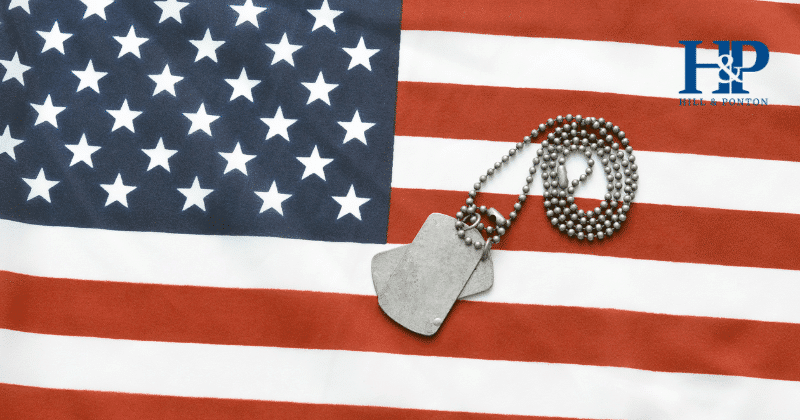Created in 1988, the Court of Appeals for Veterans’ Claims (CAVC) is a federal court and a part of the United States judiciary. While the CAVC handles veterans’ claims, it is not strictly a part of the Veterans Administration.
The Court is an appellate court of seven judges who are appointed by the President of the United States. The court handles all appeals from BVA denials.
A Court decision will grant, remainder or deny a claim. In the event that the Court denies the claim, the appellant may appeal that decision to the Federal Circuit.
Key Court Terms & Acronyms
| Appellant | The veteran/claimant who filed the appeal |
| Appellee | The Secretary of the VA; otherwise, the Court attorney handling the case |
| Notice of Docket Activity | An email notification of any activity performed in relation to the Court case; for example: filing a brief, filing a motion, filing an order |
| Brief | Summary and presentation of the argument of that party |
| RBA | Record Before the Agency; this is the copy of all relevant documents that were in the veteran’s claims file on the date that the Board issued the decision from which the appeal was based. |
| ROP | Record of Proceedings; copy of the Board decision along with any documents in the RBA that were cited in the briefs or any other documents relevant to the appeal. |
| EAJA | Equal Access to Justice Act; attorney’s fees that are paid out to whichever party wins the case. |
| CLS | Central Legal Staff; the Office of General Counsel |
What You Need to Know About the Court
Types of CAVC Decisions
The Court will make 3 kinds of decisions:
Remand
The most common type of decision that is issued.
A remand overturns the BVA’s decision with an order that the BVA must make a new decision after having completed the actions outlined in the Remanded Decision.
A Court remand is considered a “win.” A decision to remand may occur early in the case (in a Joint Motion Remand, or JMR), or may be decided by a judge.
Grant
Sometimes, a Court may grant the claim, but it is a rare occurrence.
Deny
The Court may deny a claim completely. In the event of a denial, the veteran may appeal the decision.
However, the Court will only review cases in which VA law is in question.
If the appeal does not involve a question of VA law, the veteran may be advised to resubmit a new claim.
How long it takes
The Court process varies in length. It could take a few months, up to over a year for a decision to be issued. The duration depends largely on the issue involving the claim.
The current (2023) median time from filing an appeal to the disposition of the case by the Court, is 286 days (9.5 months). The median time for disposition of a single judge decision once it has been assigned is 69 days (2.3 months).
Types of review
While most cases are generally issued by a single judge, occasionally they may be reviewed by a panel of three judges, or before the entire Court at an Oral Agreement.
EAJA Fees
The Equal Access to Justice Act (EAJA) states that the VA will pay for attorneys’ fees for representation at the Court level. If the attorney/representative wins the case, there is no fee or back pay due to the claimant. Only the representative is paid.
Step-by-Step of Appeals Process at the Court
Initial Filing
When the Board of Veterans Appeals (BVA) makes a decision on a claim, the claimant has 120 days to appeal the decision to the Court of Appeals.
Once the appeal is filed, the appellant has 14 days to file a $50 filing fee, or a Declaration of Financial Hardship, waiving the cost of the fee.
Once the preliminary documents are filed, the Appellant has 30 days to serve a copy of the BVA decision to the representative, and 60 days to serve the Record Before the Agency (RBA).
The Appellant then has 14 days to dispute the RBA (if there are any missing pages, etc.)
The Appellant has 60 days after the deadline to dispute the RBA to file the opening brief. This is the Appellant’s argument of the case. They may request a 30 day extension if needed, and is almost always granted.
CLS Conference
A telephone conference between the Central Legal Staff (CLS) attorney, and the Appellant’s attorney is set for 30 days prior to the Appellant’s deadline to file an opening brief.
The objective of the telephone conference is to try and come to a settlement between the two parties. Ideally, the attorney for the Appellant would agree with the Appellant’s argument and offer a Joint Motion for Repremant (JMR).
JMR Agreed
If a JMR results from the CLS conference, no brief is due on the case.
JMR Not Agreed
If the attorneys do not come to an agreement, the case continues through the Court system, and ultimately is decided by a judge.
Briefs
If the CLS conference does not produce an agreement, the veteran has 30 days from the date of the conference to file an opening brief. The brief is essentially argument(s) to consider.
After the opening brief is filed, the attorney for the Secretary has 30 days to file a rebuttal. Then, the veteran has 14 days to submit a reply brief.
The Record of Proceedings
After the briefs are filed, the Secretary has the responsibility to file the Record of Proceedings (ROP) for the judge to review.
This record is a compilation of all the documents relevant to the appeal, including the BVA decision, any document from the RBA cited in the briefs, and other relevant documents.
The ROP must be filed within 14 days of the receipt of the veteran’s reply brief.
Post Briefing Process
The CAVC’s Central Legal Staff (CLS) handles the case after the ROP has been filed. The CLS receives the briefs and the ROP, and prepares a memorandum discussing the issues and a possible disposition.
Then, the Clerk of the Court assigns the case to a screening judge for review.
The screening judge reviews the appeal and decides if the appeal requires a single-judge decision, a panel decision, or an en banc review.
Single-Judge Decision
The most common type of CAVC decision is a single-judge memorandum decision. The decision will either deny or remand the case.
If the Memorandum Decision is a remand, the case is returned to the BVA with a set of instructions which the BVA must follow in revisiting the case.
Post-Decision Process
Once a decision has been made, the veteran has 21 days to file a Motion for Reconsideration.
Once this time period has expired, the Clerk of Courts issues a judgment, which begins the 60-day period in which the Veteran or the Secretary may file an appeal to the Federal Circuit.
When the 60 days expire, a mandate is issued.
The mandate finalizes the judgment and signals the return of the case to the Board for the necessary actions.
The US Government pays the attorneys’ fees and expenses for the prevailing party, under the Equal Access to Justice Act (EAJA). When the application is filed, it requires a response within 30 days, and then takes 30-60 days to issue payment.
How the Court Differs from the VA
No new evidence can be filed at this point.
When working with the VA to file a claim, a claimant may file evidence to support the claim at any time. The VA is required to review and consider evidence at any point in the claim.
However, this is not the case when the claim is being processed at Court. The Court reviews a case based upon the merits of the claim as it stands–which is essentially the Claims File.
The Court does not allow any additional evidence to be added to the case at this point.
Once the Court has made a decision and the file has been returned to the Board, new evidence may be considered.
Legal issue vs. factual issue.
The Court will adjudicate a case based upon legal issues, not facts. In order to “win” a case at the Court level, the claimant has to prove that the Veterans Law Judge (VLJ) made a legal error in denying the claim at the BVA, or that the VA made an error in developing/adjudicating the claim.
The Court will not consider material facts, such as the veteran’s periods of service, symptoms or rating of the claimed conditions, etc.
Electronic Filing
Everything that is filed to and by the Court during the case is filed electronically.
Filing Deadlines
The Court has set time frames in which the Appellant and the Appellee must file and respond to documents. The parties may request an extension to file their documents.
If your VA claim was originally denied, you may be able to appeal the rating and receive VA disability compensation. The VA Disability lawyers at Hill & Ponton are available to help.




